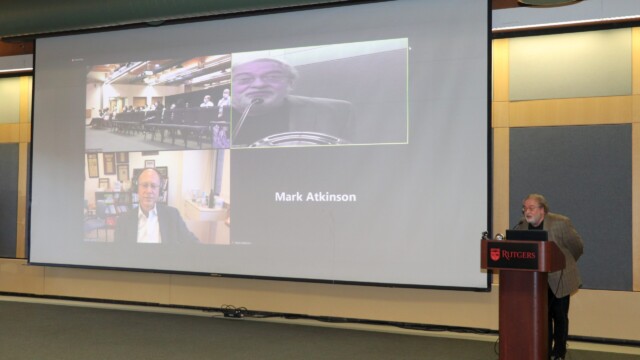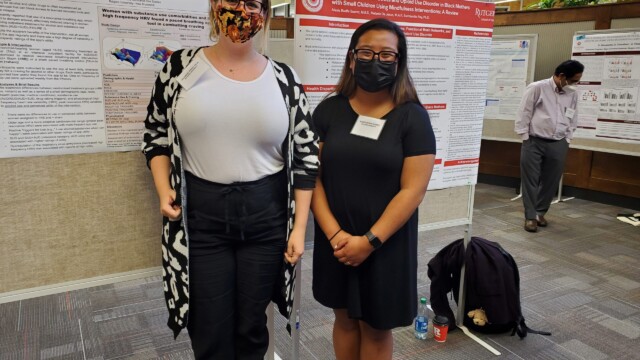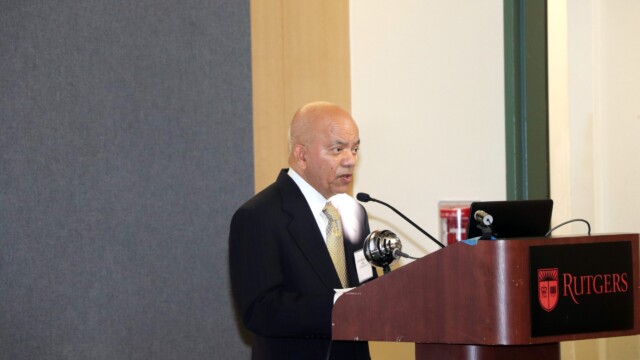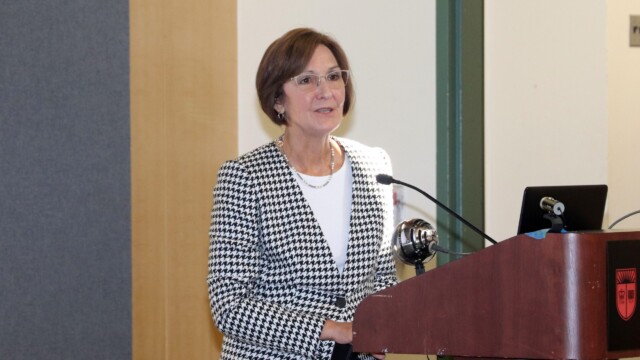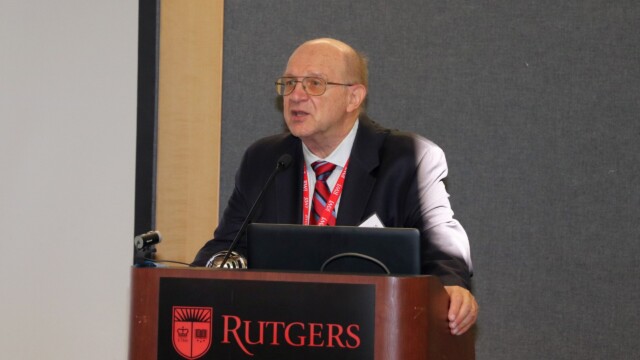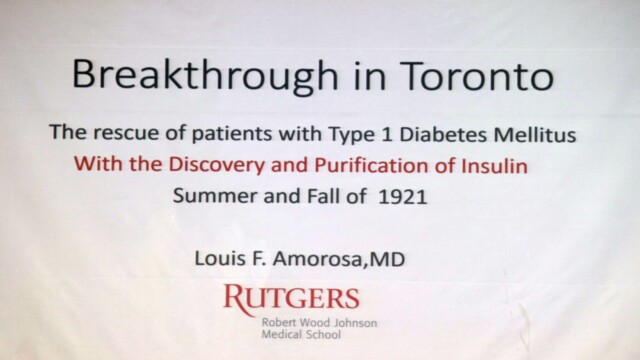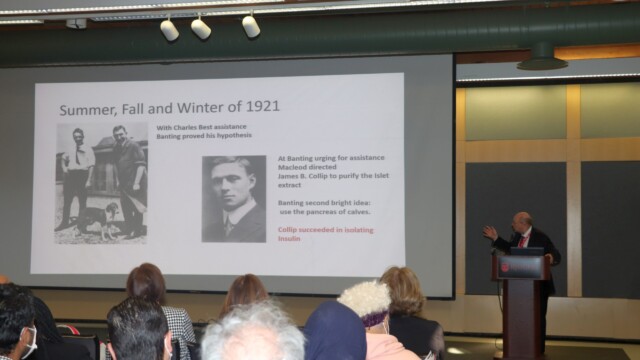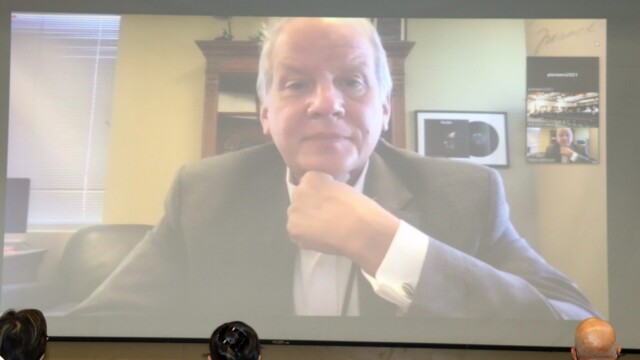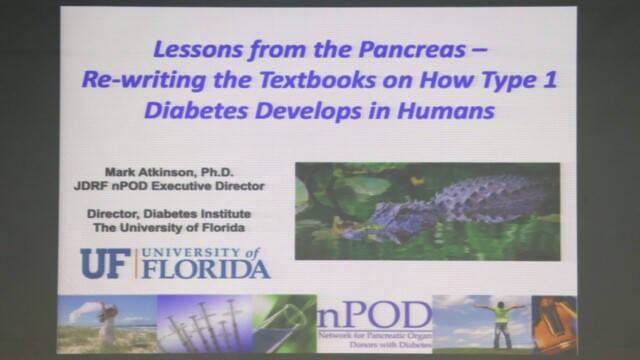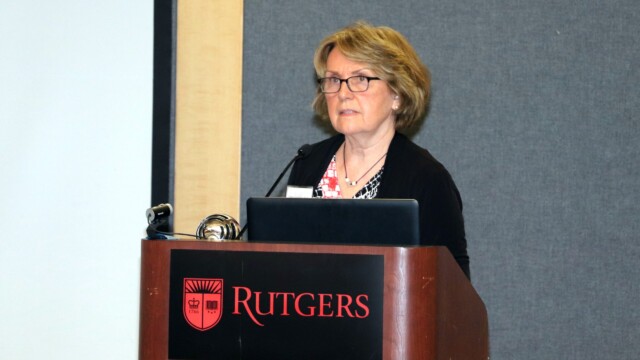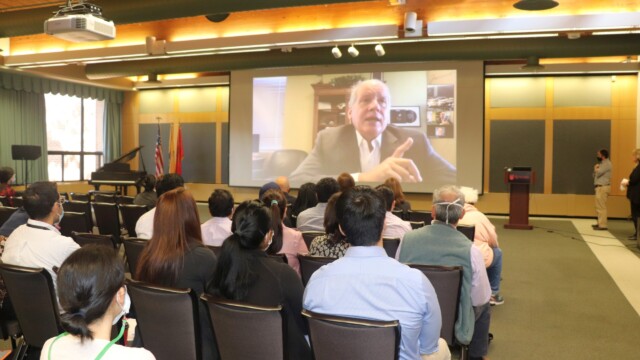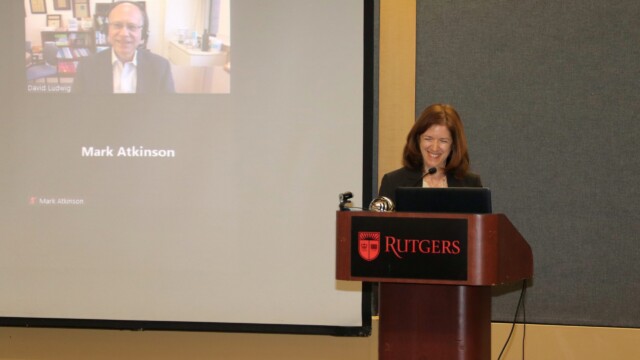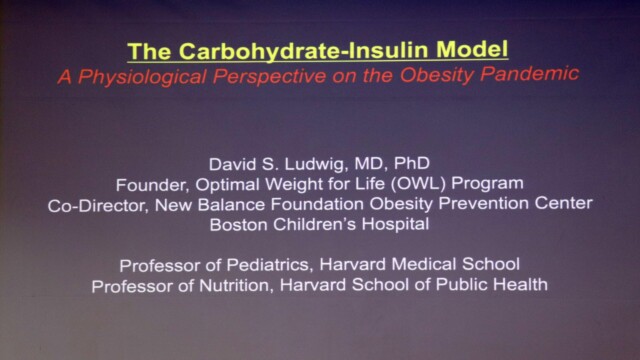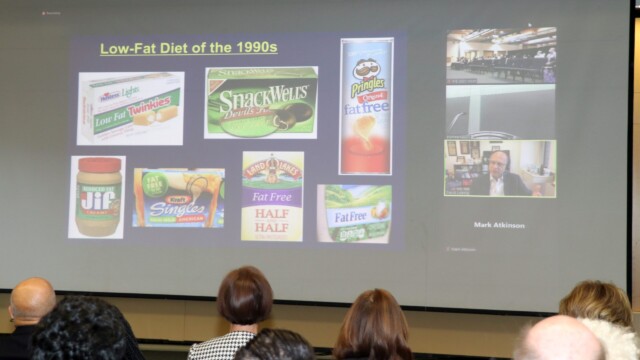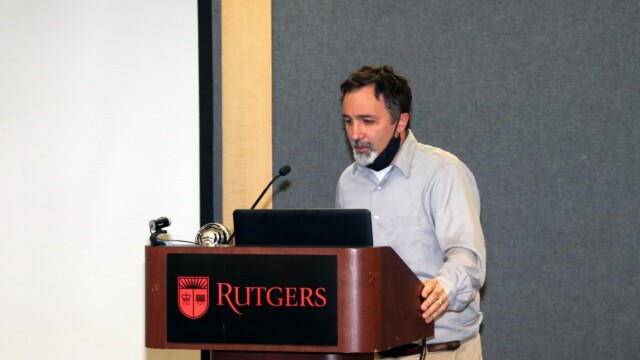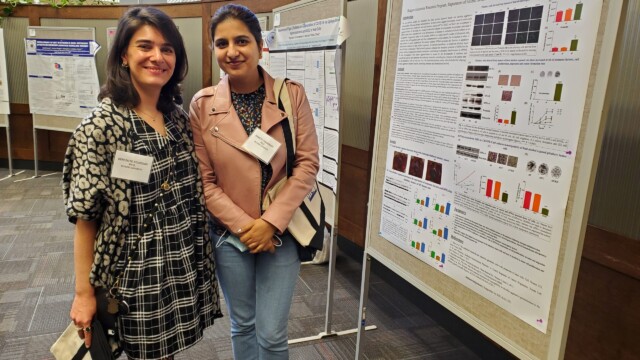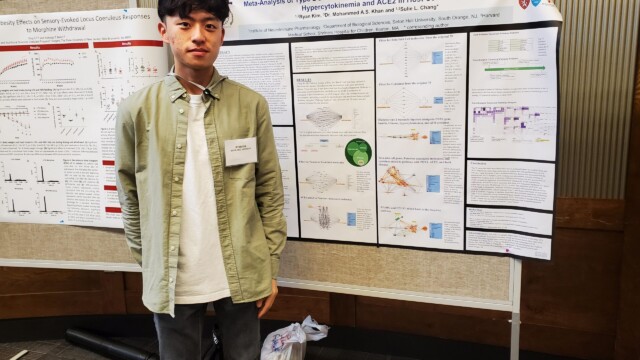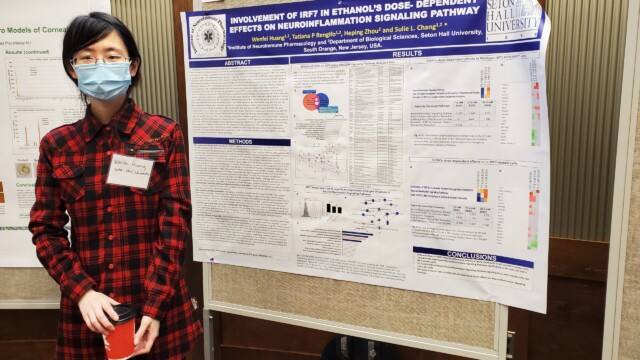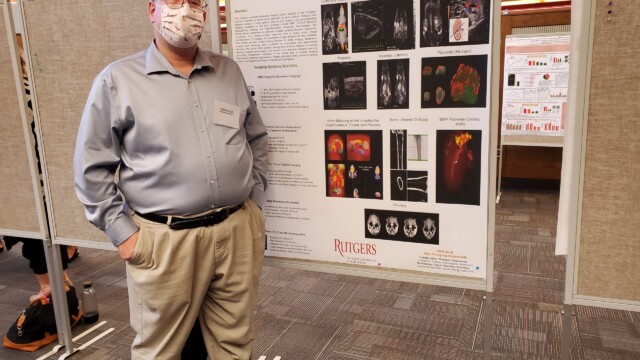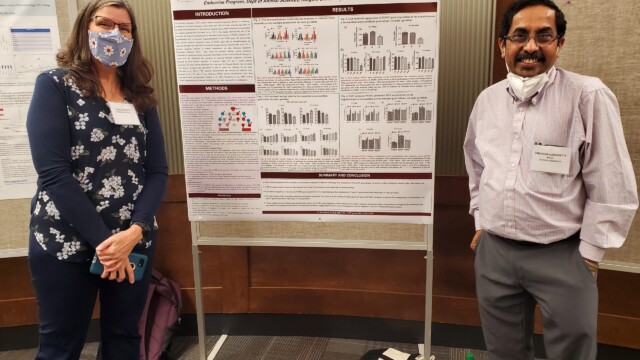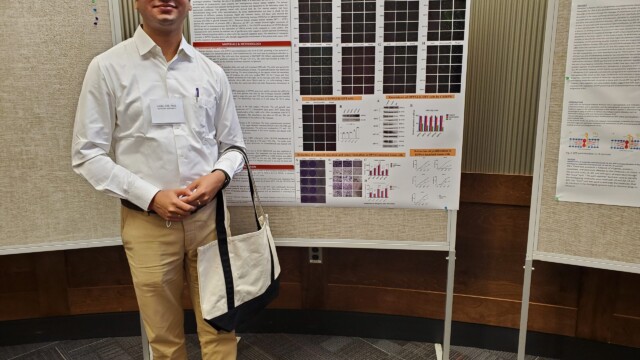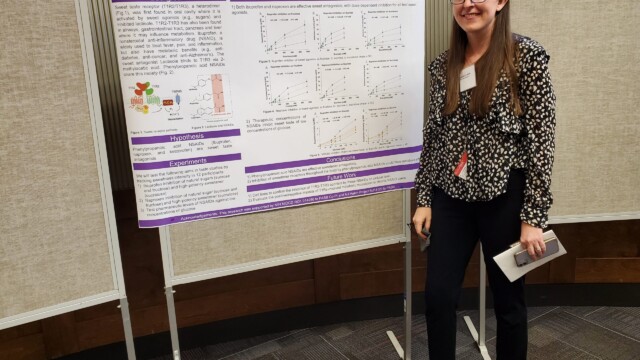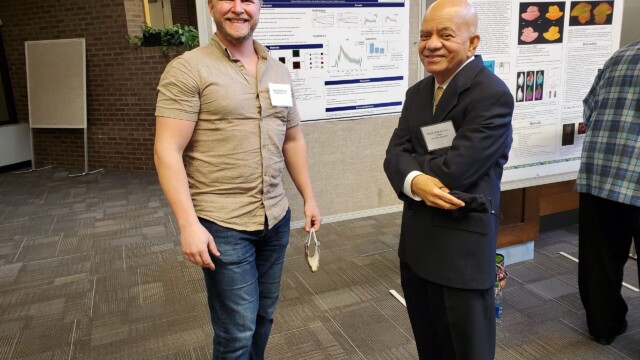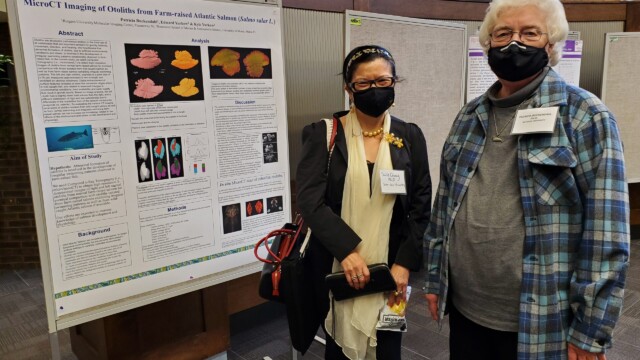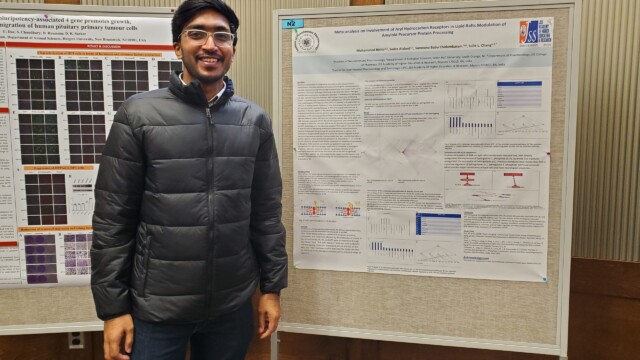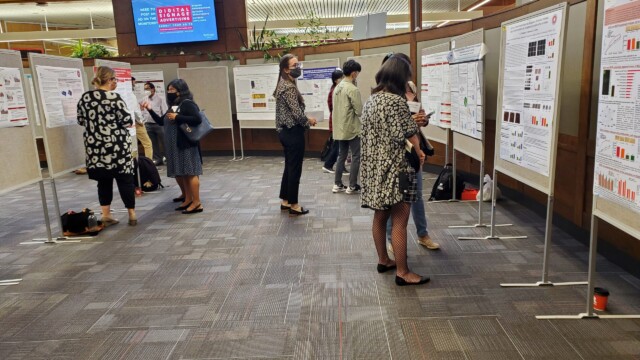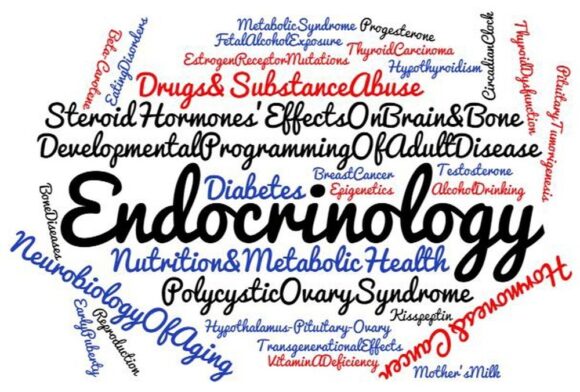 “Insulin – The 100-Year Anniversary of the Discovery of Insulin” was the theme of the 13th Annual Pioneers in Endocrinology Workshop held at Rutgers on October 21, 2021, at the Busch Student Center. The two guest speakers presented their lectures from their own institutions virtually and were projected onto a screen in the Multipurpose Room in front of a live audience.
“Insulin – The 100-Year Anniversary of the Discovery of Insulin” was the theme of the 13th Annual Pioneers in Endocrinology Workshop held at Rutgers on October 21, 2021, at the Busch Student Center. The two guest speakers presented their lectures from their own institutions virtually and were projected onto a screen in the Multipurpose Room in front of a live audience.
The workshop was sponsored by the Rutgers Endocrine Program; Rutgers-RWJMS Division of Endocrinology, Metabolism and Nutrition; the Department of Animal Sciences at the Rutgers School of Environmental and Biological Sciences; and the NExT Center, NJ Institute of Food Health and Nutrition.
Dipak Sarkar, director of the Rutgers Endocrine Program and Distinguished Professor in the Department of Animal Sciences, hosted approximately 60 attendees.
Opening remarks were presented by Sarkar and Wendie Cohick, Dean of Research and Graduate Education, School of Environmental and Biological Sciences.
Following the opening statements, Louis Amorosa, Endocrinology, Metabolism and Nutrition, gave a historical perspective about the history of insulin and the discovery it could be used to save patients with diabetes. Amorosa then introduced the first speaker, Mark A. Atkinson. Atkinson is the American Diabetes Association Eminent Scholar for Diabetes Research, Jeffrey Keene Family Professor, and the director of the Diabetes Institute at the University of Florida. His seminal work on type 1 diabetes focuses on disease prediction and prevention, the role for environment in the initiation of the disease, stem cells and pancreatic regeneration, the use of animal models in studies of type 1 diabetes pathogenesis and therapy, and the identification of markers of tolerance and immunoregulation.
Sue Shapses, professor and director of the Human Nutrition, Exercise and Metabolism Center, NJ-IFNH, introduced the second speaker, David Ludwig, professor of nutrition at Harvard School of Public Health, professor of pediatrics at Harvard Medical School, and co-director of the New Balance Foundation Obesity Prevention Center at Boston Children’s Hospital. His research investigates the effects of diet on hormones, metabolism, and body weight, and his work contributed to a novel “low glycemic load” diet to treat obesity-related diseases, as well as establishing a link between sugar-sweetened beverages and fast food to excessive weight gain, heart disease, and type 2 diabetes.
A question-and-answer session subsequent to each lecture was led by Carol Bagnell, professor and chair of the Department of Animal Sciences, and Nick Bello associate professor in the Department of Animal Sciences. The morning session was followed by a luncheon.
The afternoon featured a poster session displaying advanced endocrine research being conducted at Rutgers and other universities.
Industry colleague Research Diets presented a display booth in the Fireside Lounge at the Busch Student Center. All contributions to the workshop were generous and much appreciated.
To learn more about the Rutgers Endocrine Program and next year’s Pioneers in Endocrinology Workshop, contact Dipak Sarkar (dipak.sarkar@rutgers.edu).
Additional photos will be displayed on the Rutgers Endocrine Program website.
